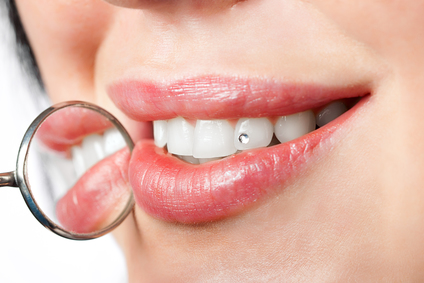Xerostomia is the condition of lacking a sufficient amount of saliva to keep
the mouth wet. This condition is also known as dry mouth. Having a mouth that feels dry can occur in anyone during times of great stress or nervousness, but if it is persistent it may be a serious condition. Xerostomia can cause many difficulties in daily life. It can cause bad breath, difficulty eating and speaking, infections in the mouth, and difficultly tasting food. Dental cavities are also a common result of Xerostomia, as saliva helps protect the teeth by keeping harmful germs away to prevent teeth from decay.
What Causes Xerostomia?
Xerostomia may be caused by a number of things. It typically is a result of dysfunction in the salivary glands. Oftentimes it is caused of prescription medications or one of many diseases that can cause the mouth to be dry. It is important to remember that xerostomia is a symptom, not a disease, so it may be a sign of serious diseases such as Parkinson’s disease, diabetes, or Sjogren’s syndrome.Other causes include tobacco use, cancer treatment, dehydration, depression,sleeping with the mouth open, damage to salivary glands, anxiety disorders, and injury or surgery.
What are the Signs and Symptomms of Xerostomia?
Xerostomia can cause many dental and health problems. If you notice you have a dry feeling in the mouth, bad breath, increased thirst, cracked lips, stringy or sticky saliva, and problems swallowing, chewing, or speaking, you most likely have Xerostomia.It is suggested you visit your health care provider or dentist for diagnosis and proper treatment. If dry mouth remains untreated, it may lead to gum disease, cheilitis or inflammation of the lips, dysgeusia or taste disorder,sialadenitis or infection of the salivary gland, and other issues.
Treatnent of Xerostomia
Treatment of dry mouth depends on the underlying cause of the condition. If it is found to be caused by medication, the doctor can decrease dosage or switch to a different medication. Medications can be prescribed that induce saliva
production as well. It is important to pay close attention to dental hygiene if
you have Xerostomia, as it can cause cavities and other oral problems if not
treated. Remember to brush the teeth thoroughly and floss regularly. Examine
the mouth daily and keep a look out for tooth decay, ulcers, and other mouth abnormalities. If you have Xerostomia, you should avoid all sugary foods and drinks, acidic foods and drinks, dry or spicy foods, chewing or smoking tobacco, caffeine, and alcohol. Breathing through the nose rather than the mouth may be suggested and drinking more water along with adding water rich foods like celery and carrots may also improve the condition.
If you have persistent dry mouth or think you may have Xerostomia, it is very
important to contact a dentist or health care provider and receive a diagnosis.
As Xerostomia can be caused by a number of things, diagnosis of an underlying
disease may be crucial for recovery. Professional treatment can also prevent
tooth decay and oral infections that may occur otherwise. Taking care of your teeth along with regular dental check-ups will keep your mouth healthy.
This post is brought to you by Biotene Canada. We are dedicated to helping you with your dry mouth problems. http://www.biotenecanada.ca

